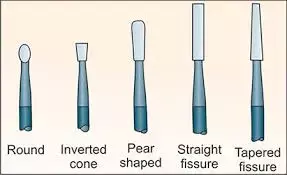- Home
- Medical news & Guidelines
- Anesthesiology
- Cardiology and CTVS
- Critical Care
- Dentistry
- Dermatology
- Diabetes and Endocrinology
- ENT
- Gastroenterology
- Medicine
- Nephrology
- Neurology
- Obstretics-Gynaecology
- Oncology
- Ophthalmology
- Orthopaedics
- Pediatrics-Neonatology
- Psychiatry
- Pulmonology
- Radiology
- Surgery
- Urology
- Laboratory Medicine
- Diet
- Nursing
- Paramedical
- Physiotherapy
- Health news
- Fact Check
- Bone Health Fact Check
- Brain Health Fact Check
- Cancer Related Fact Check
- Child Care Fact Check
- Dental and oral health fact check
- Diabetes and metabolic health fact check
- Diet and Nutrition Fact Check
- Eye and ENT Care Fact Check
- Fitness fact check
- Gut health fact check
- Heart health fact check
- Kidney health fact check
- Medical education fact check
- Men's health fact check
- Respiratory fact check
- Skin and hair care fact check
- Vaccine and Immunization fact check
- Women's health fact check
- AYUSH
- State News
- Andaman and Nicobar Islands
- Andhra Pradesh
- Arunachal Pradesh
- Assam
- Bihar
- Chandigarh
- Chattisgarh
- Dadra and Nagar Haveli
- Daman and Diu
- Delhi
- Goa
- Gujarat
- Haryana
- Himachal Pradesh
- Jammu & Kashmir
- Jharkhand
- Karnataka
- Kerala
- Ladakh
- Lakshadweep
- Madhya Pradesh
- Maharashtra
- Manipur
- Meghalaya
- Mizoram
- Nagaland
- Odisha
- Puducherry
- Punjab
- Rajasthan
- Sikkim
- Tamil Nadu
- Telangana
- Tripura
- Uttar Pradesh
- Uttrakhand
- West Bengal
- Medical Education
- Industry
In dental practice, Rotary cutting instruments should preferably not subjected to multiple uses

The presence of microorganisms and structural damage on the RCIs confirmed that they are not amenable to processing, a fact that characterizes them as a single-use health care product suggests a new study published in The Journal of the American Dental Association.
Rotary cutting instruments (RCIs) are sterilized routinely. The authors aimed to analyze the structural integrity, presence of dirt, and microbial contamination of RCIs used in clinical practice after processing.
Eighty-four RCIs (42 carbide burs, 42 diamond burs) were divided into baseline, control, and test groups. The RCIs were evaluated by means of scanning electron microscopy and microbiological analysis. Evaluation criteria included presence of structural damage, dirt, biofilm, and isolated cells and their phenotypic profile.
Results
The carbide burs from all groups and diamond burs from the test groups had structural damage. Dirt was observed in the baseline and test groups. Three bacterial species were isolated from 4 RCIs (9.52%). An isolated cell was observed from 1 carbide bur. Biofilm was observed on 3 RCIs (7.14%).
RCIs should not be subjected to multiple uses; after the first clinical use they accumulate structural damage and dirt that hampers the cleaning step, causing failure in the sterilization process. The presence of microorganisms and structural damage on the RCIs confirmed that they are not amenable to processing, a fact that characterizes them as a single-use health care product.
Reference:
Biofilm on and structural damage of rotary cutting instruments after 5 cycles of clinical use and processing. Francisco Antonio Uchoa-Junior, Terezinha de Jesus Esteves Barata, Lara Stefânia Netto de Oliveira Leão-Vasconcelos, Evandro Leão Ribeiro, Anaclara Ferreira, Veiga Tipple. The Journal of the American Dental Association. April 28, 2023DOI:https://doi.org/10.1016/j.adaj.2023.03.005
Keywords:
Biofilm, structural damage, rotary cutting, instruments, after, 5 cycles, clinical use, processing, Francisco Antonio Uchoa-Junior, Terezinha de Jesus Esteves Barata, Lara Stefânia Netto de Oliveira Leão-Vasconcelos, Evandro Leão Ribeiro, Anaclara Ferreira, Veiga Tipple, The Journal of the American Dental Association, RCIs, subjected, multiple uses
Dr. Shravani Dali has completed her BDS from Pravara institute of medical sciences, loni. Following which she extensively worked in the healthcare sector for 2+ years. She has been actively involved in writing blogs in field of health and wellness. Currently she is pursuing her Masters of public health-health administration from Tata institute of social sciences. She can be contacted at editorial@medicaldialogues.in.
Dr Kamal Kant Kohli-MBBS, DTCD- a chest specialist with more than 30 years of practice and a flair for writing clinical articles, Dr Kamal Kant Kohli joined Medical Dialogues as a Chief Editor of Medical News. Besides writing articles, as an editor, he proofreads and verifies all the medical content published on Medical Dialogues including those coming from journals, studies,medical conferences,guidelines etc. Email: drkohli@medicaldialogues.in. Contact no. 011-43720751


